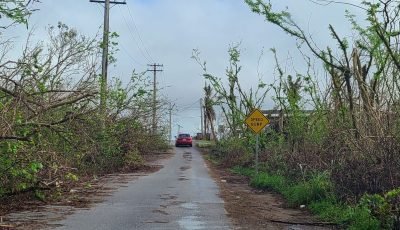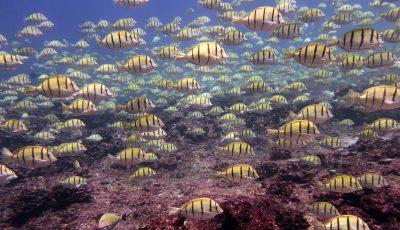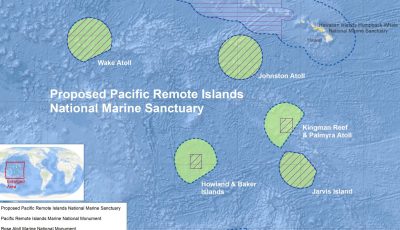Committee urges stronger federal-local ties for coral reef protection
In light of global climate events, the U.S. All Island Coral Reef Committee urges the “immediate elevation” of the climate change issue within the federal government, among other issues, in a recent report.
Global risk to coral reefs continues to grow, according to AIC chair Fran Castro. Under the status quo, coral reefs continue to decline at alarming rates, she said.
According to Castro’s report from late February, the year 2015 is expected to the worst coral bleaching event since 1998, when the U.S. “functionally lost 15-20 percent (almost 1/5th) of the world’s coral reefs.”
AIC asked the U.S. Coral Reef Task Force to “be a voice in pushing for the immediate elevation of the climate change issue within the federal government.”
“Immediate action is needed by the federal government to take on this carbon emission challenges. Inaction is simply not a viable strategy,” the report stated.
To the recent listing of 20 coral species under the Endangered Species Act, AIC noted “the need for increased staff capacity” for the newly listed species. This is also needed for “the current bottleneck” in the review of permits and projects for previously listed corals, the report said.
AIC also recommended a “balance between resource protection and use” in any special regulations made for these species.
They said consideration should be given to activities related to common use.
“Common non-destructive fishing and boating activities should be allowed to proceed as usual due to their importance as a local tradition and way of life in coral reef jurisdictions,” the report stated.
Exemptions should also be made for “minor accidental impacts” to these corals, according to AIC. Additionally, thresholds should be defined for what is maximum allowable impact, stated AIC.
AIC urged further dialogue and consultation between them and NOAA Fisheries on the issue moving forward.
AIC also asked that the Task Force “formally support” the Coral Reef Management Fellowship program, so that they work together to build an “institutionalized program with a sustained source of funding.”
This program builds coral reef management capacity at the local level. Right now, the program is kept afloat by NOAA’s Coral Reef Conservation Program and contributions from AIC members. Funding will be pursued again in the next one to two years.
AIC jurisdictions include American Samoa, the CNMI, Florida, Guam, Hawaii, Puerto Rico, and the U.S. Virgin Islands. Affiliate jurisdictions are the Federal States of Micronesia, Marshall Islands, and Palau.
AIC presents the “unified voice” for the effective management of coral reef ecosystems in the U.S. and Freely Associated states. The committee aims for “thriving coral reef ecosystems,” that “effectively managed to protect their ecological, social, and economic value for future generations.”



























